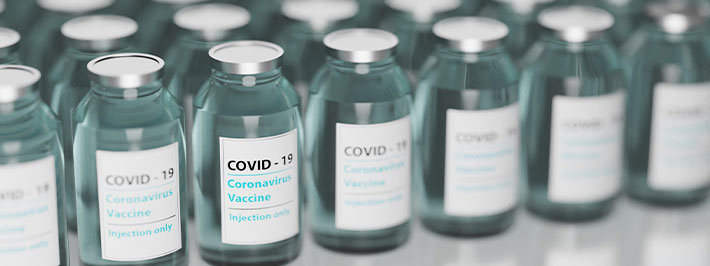
Why is the WHO still looking for an alternative to beat the coronavirus?
Research on additional remedies that can prevent and cure Covid-19 continues to intensify. The World Health Organization (WHO) has announced that new clinical trials will be launched to test the efficacy of three treatments. But what are they?
The vaccine is the most effective weapon in the fight against Covid-19. But the authorities do not want to be satisfied with this serum against the coronavirus, which is currently the only solution to defeat this virus, because although it is extremely effective, it does not confer total immunity against the virus. Also, the threat from the Delta variant is worrying. That is why scientists around the world continue to test and develop other preventive and curative treatments for coronavirus.
Vaccination and treatment "are completely complementary. Vaccination is accelerating across Europe (...) but although it makes a difference and is cause for optimism, it will not stop the pandemic for a day. Furthermore, treatments play a crucial role in our fight against Covid-19, "a European Commission official explained 20 minutes.
On August 11, the World Health Organization (WHO) announced at a press conference that it was preparing to test three new curative treatments.
Covid-19: WHO will test additional treatments
These tests will be carried out as part of the next phase of the "Solidarity clinical trial of treatments against Covid-19", called "Solidarity PLUS". The latter is intended to test three additional drugs against the virus. "Finding more effective and accessible treatments for Covid-19 patients remains a critical need," said WHO Director-General Tedros Adhanom Ghebreyesus.
This trial involves 2,000 researchers in more than 600 hospitals in 52 countries. "This allows to evaluate multiple treatments at the same time using a single protocol, recruiting thousands of patients to generate solid estimates of the effect that a drug can have on mortality, even moderate effects", we can read in the press release of the health authority.
In previous phases, the trial had evaluated remdesivir, hydroxychloroquine, lopinavir, and interferon. The results showed that these four treatments had "little or no effect" on hospitalized patients with the coronavirus.
Covid-19: what are the three drugs tested by the WHO?
Drugs in WHO clinical trials are artesunate, imatinib, and infliximab. The latter were selected by a group of independent experts for their potential ability to reduce the risk of death in hospitalized patients with Covid-19. These treatments are already used to treat other diseases.
Artesunate has been used in severe malaria and other parasitic diseases for more than 30 years. "In the trial, it will be administered intravenously for 7 days, using the standard recommended dose for the treatment of malaria," WHO said. This test aims to evaluate the anti-inflammatory properties of this drug.
Imatinib is used to treat certain cancers. In this test, it will be taken once a day for 14 days. "A clinical trial conducted in the Netherlands indicated that imatinib could provide a clinical benefit in hospitalized patients with Covid-19," the health authority said. As for the drug infliximab, it is prescribed to treat diseases of the immune system, such as Crohn's disease. Patients participating in the trial will benefit from the infusions.